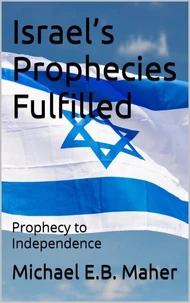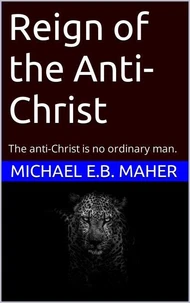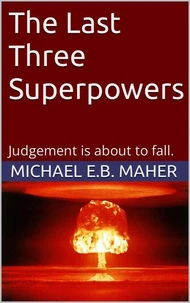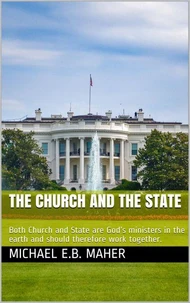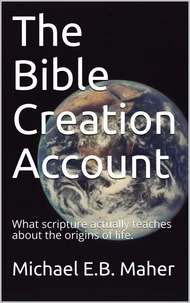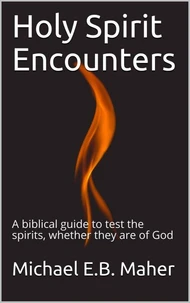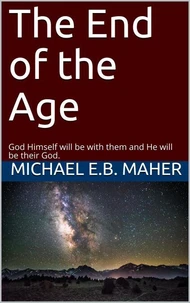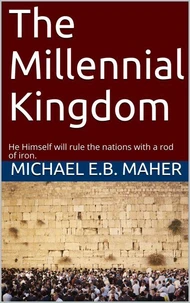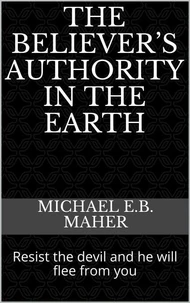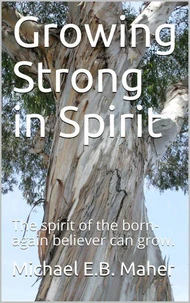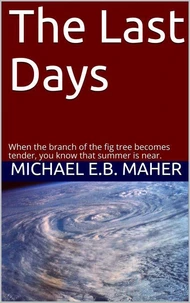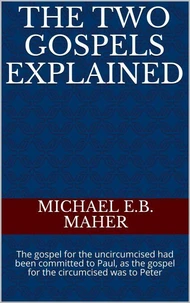Two Israels Unveiled. Israel’s Prophetic Journey, #1
Par :Formats :
Disponible dans votre compte client Decitre ou Furet du Nord dès validation de votre commande. Le format ePub est :
- Compatible avec une lecture sur My Vivlio (smartphone, tablette, ordinateur)
- Compatible avec une lecture sur liseuses Vivlio
- Pour les liseuses autres que Vivlio, vous devez utiliser le logiciel Adobe Digital Edition. Non compatible avec la lecture sur les liseuses Kindle, Remarkable et Sony
 , qui est-ce ?
, qui est-ce ?Notre partenaire de plateforme de lecture numérique où vous retrouverez l'ensemble de vos ebooks gratuitement
Pour en savoir plus sur nos ebooks, consultez notre aide en ligne ici
- FormatePub
- ISBN8224688838
- EAN9798224688838
- Date de parution25/07/2024
- Protection num.pas de protection
- Infos supplémentairesepub
- ÉditeurVirtued Press
Résumé
This book, the first in a series on biblical prophecy, examines the critical concept of two Israels as revealed in Scripture. Misunderstood by many scholars, this distinction is essential for accurate prophecy interpretation. Just as Jews misinterpret messianic prophecies by not distinguishing between the Messiah's two comings, recognizing the two Israels-the nation and the church-is crucial. This book clarifies that God has separate plans for each, debunking "Replacement Theology" and ensuring a correct prophetic understanding.
This book explores the concept of "Israel after the flesh, " which refers to the physical descendants of Jacob (Israel). It discusses the criteria for being recognized as an Israeli, which include tracing ancestry back to Jacob and circumcision. The book delves into the historical and biblical context, explaining the distinction between the physical nation of Israel and spiritual Israel. It highlights the temporary nature of Israel after the flesh, stating that God's purposes for this Israel will cease at the end of the current age, giving way to the eternal Israel of God.
This book explores the concept of "two Israels" in Christian theology: Israel after the flesh and the Israel of God. It argues that while Israel after the flesh refers to the ethnic Jewish people, the Israel of God encompasses believers born again in Christ, transcending ethnic boundaries. Using scriptural references, it asserts that the church represents the Israel of God, contrasting with the physical nation of Israel.
The discussion highlights the theological implications of this distinction and its impact on interpreting biblical prophecy.
This book explores the concept of "Israel after the flesh, " which refers to the physical descendants of Jacob (Israel). It discusses the criteria for being recognized as an Israeli, which include tracing ancestry back to Jacob and circumcision. The book delves into the historical and biblical context, explaining the distinction between the physical nation of Israel and spiritual Israel. It highlights the temporary nature of Israel after the flesh, stating that God's purposes for this Israel will cease at the end of the current age, giving way to the eternal Israel of God.
This book explores the concept of "two Israels" in Christian theology: Israel after the flesh and the Israel of God. It argues that while Israel after the flesh refers to the ethnic Jewish people, the Israel of God encompasses believers born again in Christ, transcending ethnic boundaries. Using scriptural references, it asserts that the church represents the Israel of God, contrasting with the physical nation of Israel.
The discussion highlights the theological implications of this distinction and its impact on interpreting biblical prophecy.
This book, the first in a series on biblical prophecy, examines the critical concept of two Israels as revealed in Scripture. Misunderstood by many scholars, this distinction is essential for accurate prophecy interpretation. Just as Jews misinterpret messianic prophecies by not distinguishing between the Messiah's two comings, recognizing the two Israels-the nation and the church-is crucial. This book clarifies that God has separate plans for each, debunking "Replacement Theology" and ensuring a correct prophetic understanding.
This book explores the concept of "Israel after the flesh, " which refers to the physical descendants of Jacob (Israel). It discusses the criteria for being recognized as an Israeli, which include tracing ancestry back to Jacob and circumcision. The book delves into the historical and biblical context, explaining the distinction between the physical nation of Israel and spiritual Israel. It highlights the temporary nature of Israel after the flesh, stating that God's purposes for this Israel will cease at the end of the current age, giving way to the eternal Israel of God.
This book explores the concept of "two Israels" in Christian theology: Israel after the flesh and the Israel of God. It argues that while Israel after the flesh refers to the ethnic Jewish people, the Israel of God encompasses believers born again in Christ, transcending ethnic boundaries. Using scriptural references, it asserts that the church represents the Israel of God, contrasting with the physical nation of Israel.
The discussion highlights the theological implications of this distinction and its impact on interpreting biblical prophecy.
This book explores the concept of "Israel after the flesh, " which refers to the physical descendants of Jacob (Israel). It discusses the criteria for being recognized as an Israeli, which include tracing ancestry back to Jacob and circumcision. The book delves into the historical and biblical context, explaining the distinction between the physical nation of Israel and spiritual Israel. It highlights the temporary nature of Israel after the flesh, stating that God's purposes for this Israel will cease at the end of the current age, giving way to the eternal Israel of God.
This book explores the concept of "two Israels" in Christian theology: Israel after the flesh and the Israel of God. It argues that while Israel after the flesh refers to the ethnic Jewish people, the Israel of God encompasses believers born again in Christ, transcending ethnic boundaries. Using scriptural references, it asserts that the church represents the Israel of God, contrasting with the physical nation of Israel.
The discussion highlights the theological implications of this distinction and its impact on interpreting biblical prophecy.




